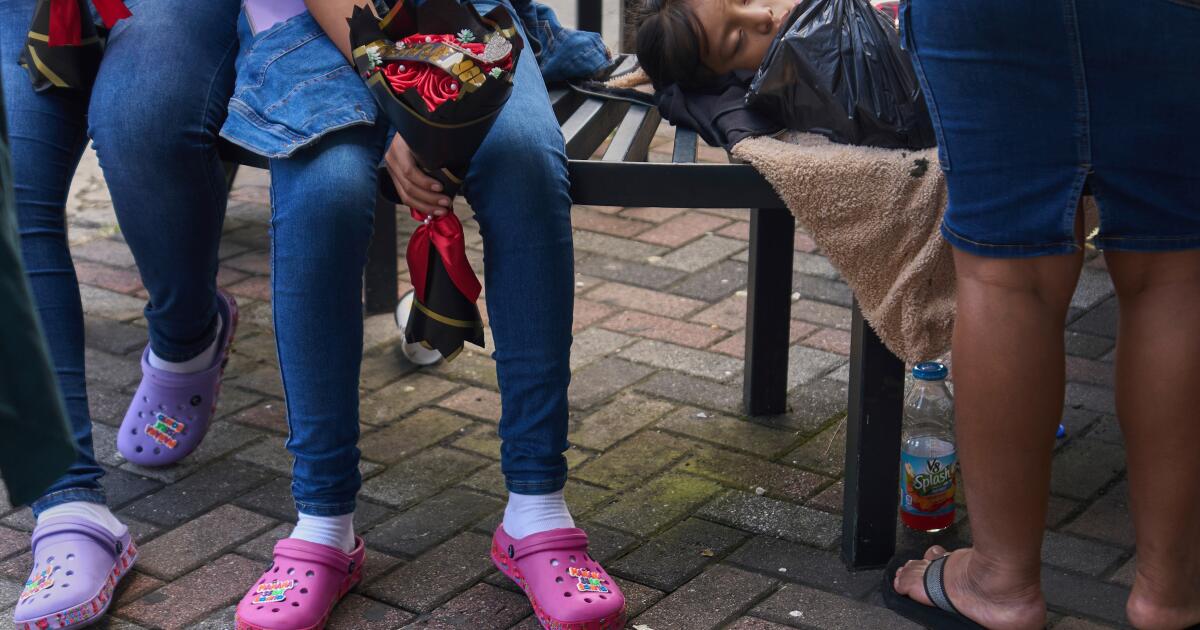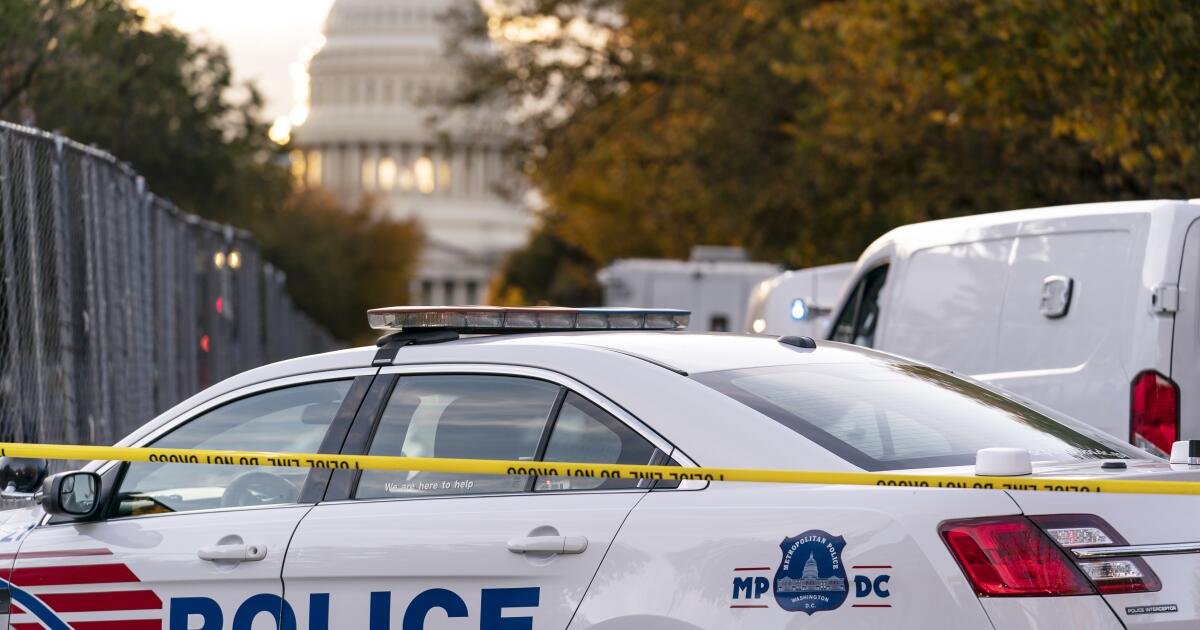ICE is showing up to interview parents hoping to reunite with their children who entered U.S. alone
McALLEN, Texas — President Trump’s administration has started requiring parents looking to reunite with their children who crossed into the U.S. alone to show up for interviews where immigration officers may question them, according to a policy memo obtained by The Associated Press.
Legal advocacy groups say the shift has led to the arrest of some parents, while their children remain in U.S. custody. The U.S. Department of Homeland Security did not confirm that or answer questions about the July 9 directive, instead referring in a statement to the Biden administration’s struggles to properly vet and monitor homes where children were placed.
The Office of Refugee Resettlement, which is part of the U.S. Health and Human Services Department and which takes custody of children who cross the border without a parent or legal guardian, issued the directive. The agency said the goal is to ensure that sponsors — usually a parent or guardian — are properly vetted.
The memo is among several steps the Trump administration has taken involving children who came to the U.S. alone. Over the Labor Day weekend it attempted to remove Guatemalan children who were living in shelters or with foster care families.
The July 9 memo regarding sponsors said they must now appear in person for identification verification. Previously, sponsors could submit identity documents online. The directive also says “federal law enforcement agencies may be present to meet their own mission objectives, which may include interviewing sponsors.”
Neha Desai, managing director of human rights at the National Center for Youth Law, said the change provides U.S. Immigration and Customs Enforcement a “built-in opportunity” to arrest parents — something she said has already happened.
Mary Miller Flowers, director of policy and legislative affairs for the Young Center for Immigrant Children’s Rights, said she knew of a case in which immigration officers arrested the father of a child under the age of 12 who had shown up for an identification check. “As a result, mom is terrified of coming forward. And so, this child is stuck,” Miller Flowers said.
Desai also said the interviews are unlikely to produce information authorities don’t already have. Vetting already included home studies and background checks done by Office of Refugee Resettlement staff, not immigration enforcement.
The Office of Refugee Resettlement said it communicates “clearly and proactively” with parents, telling them they may be interviewed by ICE or other law enforcement officials. It said parents can decline to be interviewed by ICE and that refusal won’t influence decisions about whether their children will be released to them.
“The goal is to ensure that every child is released to a stable and safe environment and fully vetted sponsors by ensuring the potential sponsor is the same individual submitting supporting documentation, including valid ID,” it said in a statement.
However, Desai is aware of a situation in which a sponsor was not notified and only able to decline after pushing back.
“We know of sponsors who are deeply, deeply fearful because of this interview, but some are still willing to go forward given their determination to get their children out of custody,” she said.
Trump administration points to Biden
Tricia McLaughlin, a Homeland Security spokesperson, issued a statement that did not address any arrests or mention the specific changes. Instead, she said the department is looking to protect children who were released under President Joe Biden’s administration.
A federal watchdog report released last year addressed the Biden’s administration struggles during an increase in migrant children arriving at the U.S.-Mexico border in 2021. The Trump administration has dispatched Homeland Security and FBI agents to visit the children.
Another recent change allows ICE to interview children while they are at government-run shelters. That took effect July 2, according to a separate directive that the Office of Refugee Resettlement sent to shelters, also obtained by the AP.
The agency said it provides legal counsel to children and that its staff does not participate in interviews with law enforcement. Child legal advocates say they get as little as one-hour notice of the interviews, and that the children often don’t understand the purpose of the interview or are misled by officers.
“If we don’t understand what the interview is for or where the information is going, are we really consenting to this process?” said Miller Flowers, with the Young Center.
Jennifer Podkul, chief of global policy at Kids in Need of Defense, said some officers lack language skills, trauma-informed interviewing techniques and knowledge of the reunification process.
“It seems like it’s designed just to cast the net wider on immigration enforcement against adults,” she said.
String of policy changes adding hurdles to reunification process
The July changes are among the steps the Trump administration has taken to ramp up vetting of parents seeking to reunite with children.
The administration has required fingerprinting from sponsors and any adults living in the home where children are released. It has also required identification or proof of income that only those legally present in the U.S. could acquire, as well as introducing DNA testing and home visits by immigration officers.
Children have been spending more time in government-run shelters under increased vetting. The average length of stay for those released was 171 days in July, down from a peak of 217 days in April but well above 37 days in January, when Trump took office.
About 2,000 unaccompanied children were in government custody in July.
Shaina Aber, an executive director of the Acacia Center for Justice analyzing child custody data, attributes the longer custody times to the policy changes.
“The agency’s mission has been conflated and entangled,” she added. “It seems ORR’s mission has been somewhat compromised in that they are now doing more on the immigration enforcement side, and they’re not an immigration enforcement entity.”
Gonzalez writes for the Associated Press.

